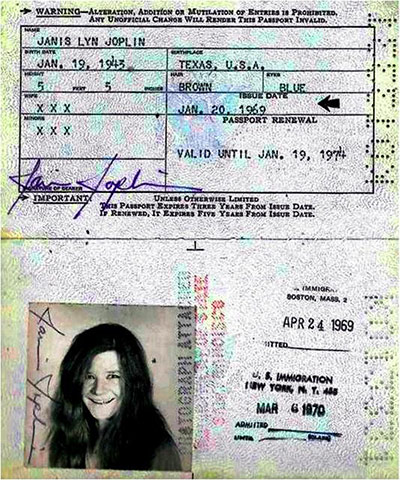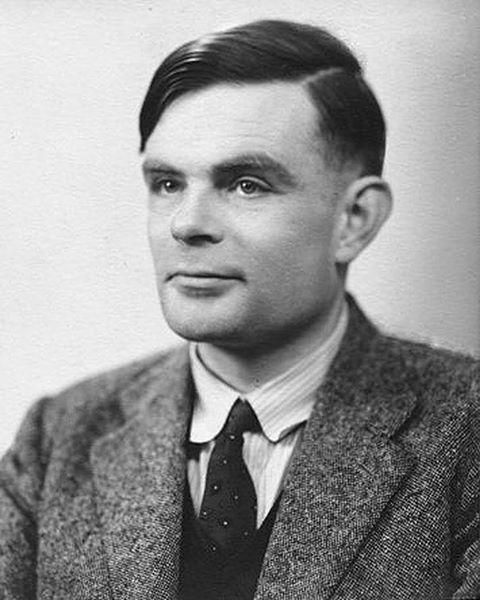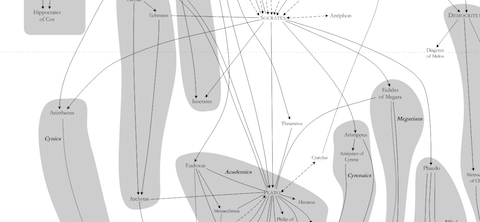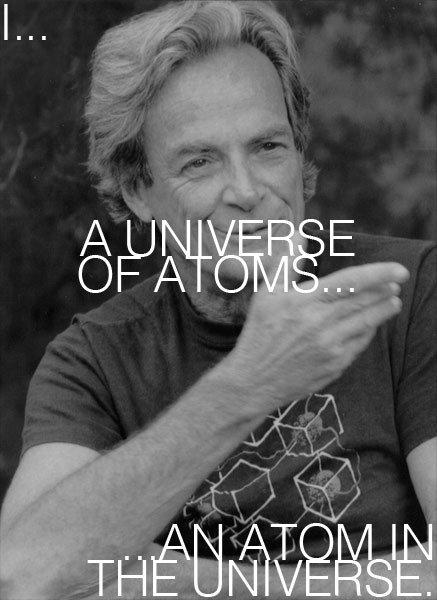Upland, California-based sound engineer Nick Galvan of Dethpop Videos has created a song where he transitions through 26 different genres of heavy metal music alphabetically. Nick rips through everything from Alternative Metal to geeky Zelda Metal. He was heavily inspired by the “A to Z” 26 genre song from Andrew Huang and David Brown.
Shared posts
A Song Transitioning Through 26 Genres of Heavy Metal Alphabetically
The truth about procrastination
David McRaney of You are Not so Smart and You are Now Less Dumb has a piece about why we procrastinate:
The truth about procrastinationThe Misconception: You procrastinate because you are lazy and can’t manage your time well.
The Truth: Procrastination is fueled by weakness in the face of impulse and a failure to think about thinking.
Court finds for man who rewrote the credit-card fine-print to give himself unlimited, interest-free credit

A wily Russian fellow crossed out the fine-print on an unsolicted credit-card application from Tinkoff Credit Systems in 2008 and wrote in his own terms, giving himself unlimited, interest-free credit and exemption from all fees, with a 3MM ruble fee should the bank change the terms and a 1MM ruble fee should they cancel his card. He crossed out the URL giving the terms and conditions and wrote in his own. And a court has ruled that his changes -- which were blindly accepted by the bank -- are binding. He's now suing them for breach of contract, since they refused to pay him the cancellation fee he'd written in -- he's seeking USD727,000.
Among the amendments in his version of the contract — unlimited credit, 0% APR, no fees, including the stipulation that he “is not obliged to pay any fees and charges imposed by bank tariffs.” Since the contract included a URL for a web page containing the full terms of service, the customer also wrote in a new URL of his own so that the bank couldn’t just say “but these terms are different than what’s published on the site.”
Per the amended terms, every change to these terms would result in a payment of 3 million rubles ($91,000) to the customer, or a cancelation fee of 6 million rubles ($182,000)...
...And so Tinkoff sued the customer. However, the court held that his amendments were binding since the bank accepted them, whether it looked at them or not. The court said the customer only owed the principal balance of around $575.
Perhaps emboldened by this victory, the customer then sued Tinkoff for a whopping $727,000 for its failure to honor the amended agreement and for not paying out the agreed-upon penalty of $182,000 when it canceled his account.
Man Tries To Beat Bank At Its Own Game With Fine Print That Gives Him Unlimited Credit [Chris Morran/Consumerist]
(Image: Fine Print, a Creative Commons Attribution Share-Alike (2.0) image from cjsorg's photostream)
By reading this blog-post you agree, on behalf of your employer, to release me from all obligations and waivers arising from any and all NON-NEGOTIATED agreements, licenses, terms-of-service, shrinkwrap, clickwrap, browsewrap, confidentiality, non-disclosure, non-compete and acceptable use policies ("BOGUS AGREEMENTS") that I have entered into with your employer, its partners, licensors, agents and assigns, in perpetuity, without prejudice to my ongoing rights and privileges. You further represent that you have the authority to release me from any BOGUS AGREEMENTS on behalf of your employer.
Crowdfunding an Ubuntu phone that doubles as your PC
Canonical, the company that leads and maintains Ubuntu (the free operating system I use for everything), is looking to raise $32M on Ind-yGoGo in order to build a phone called the Ubuntu Edge, which will be "a phone that’s designed from the ground up to be a PC as well." It's a beautiful looking device, and I've got confidence that Ubuntu can do unique and important things with mobile phone operating systems (it will dual-boot Ubuntu and Android). The phone is meant to be powerful enough to serve as your desktop PC -- just plug it into a monitor, keyboard and mouse.
Crafted from cool, textured amorphous metal, the Edge has a distinctive, precise look but its rakishly chamfered edges are shaped to fit naturally in the palm -- our design prototype already has a wonderfully solid feel. It’s the right size, too. Edge gestures are the next big thing in mobile, and our testing has found that a 4.5in screen is ideal for comfortable control of all four edges with one hand.We also believe the race for ever higher resolution has become a distraction. Beyond 300ppi you’re adding overhead rather than improving display clarity. We think colour, brightness and dynamic range are now the edge of invention so we’ll choose a display for its balance of resolution, dynamic range and colour accuracy.
We’ll protect that gorgeous display with something vastly tougher than glass: pure sapphire crystal, a material so hard only diamond could scratch it. For a phone to run a full desktop OS, it must have the raw power of a PC. We’ll choose the fastest available multi-core processor, at least 4GB of RAM and a massive 128GB of storage. The battery will use silicon-anode technology, so we can squeeze more energy into the same dimensions.
The rewards are pretty steeply pitched: $20 gets you a good feeling and $600 gets you a phone, with nothing inbetween. But $600 sounds like a deal for a phone that doubles as a laptop. As with all crowdfunded projects, you need to be aware that they may raise a lot of money and produce no hardware, though Canonical has a good reputation for shipping on time.
Placebo buttons
Brown? In London? Papers please.

(Photo: NRBrizzle)
In London today, members of the UK Border Agency were stopping people of color at various tube stations and demanding that they show identity papers. Several eyewitnesses confirmed that the patrol officers were singling out brown people, that they were intimidating in demeanor, and that they threatened to arrest passers-by who asked what was going on. At least one officer is reported to have removed his badge number. This comes as the UKBA began to blitz London's neighbourhoods with vans threatening undocumented migrants with arrest and deportation and exhorting them to turn themselves in.
Kensal Rise resident Phil O’Shea told the Times he was threatened with arrest when he asked what was going on.
He said: “I thought the behaviour of the immigration officers was heavy-handed and frightening. They appeared to be stopping and questioning every non-white person, many of whom were clearly ordinary Kensal Green residents going to work.
“When I queried what was going on I was threatened with arrest for obstruction and was told to ‘crack on’.
“I asked that officer for his name but he refused to give it and said I could read his number on his shoulder but I couldn’t see a number there.”
NEWSFLASH: UK Border Agency ID Checking People of Colour At Train Stations [Scriptonite Daily]
(via Charlie Stross) ![]()
Vintage celebrities' passport photo-pages

The Guardian rounds up the passport photo-pages of various glamorous and celebrity personages of the 50s and 60s. I'm very partial to both Einstein and Janis Joplin's.
Passport photographs of celebrities - in pictures (via Crazy Abalone)


What Happens When You Abolish Tipping
For more than six years, I ran a restaurant without tips.
Technically, the US has been using the metric system since 1893
Look at the interesting badges on these Russian cops roughing up gay rights protesters
 It's just a coincidence, but the Cyrillic characters look like "homo" spelled backwards.
It's just a coincidence, but the Cyrillic characters look like "homo" spelled backwards.Here's a larger version of the image shot by Anatoly Maltsev for European Pressphoto Agency, of police detaining a man after an attack on a gay rights activist in St. Petersburg.
The Cyrillic letters indicate that the agents are from ОМОН, Отряд мобильный особого назначения, Otryad Mobilniy Osobogo Naznacheniya, or Special Purpose Mobile Unit. In other words, riot police.
Below, the image flipped. [Thanks, Boing Boing BBS user Picasso8008]:

[HT: alec mackaye, thanks Aileen Graef]![]()
Dutch ebook sellers promise to spy on everyone's reading habits, share them with "anti-piracy" group
Earlier this summer, the German Booksellers Association announced a daft "watermarking" process for ebooks that would introduce random variations in the text as a means of uniquely identifying them. At the time, I pointed out that this was just silly: firstly, it's not hard to detect and vary the watermarks (just compare two different copies of the text using a 40-year-old program called "diff") and secondly, because the fact that a pirate site has a copy of a book with "your" watermark in it doesn't mean that you've done anything wrong. It's not illegal to lose your computer, be hacked, or give your hard-drive away.
What I totally failed to anticipate was that booksellers and publishers would use watermarking as a rubric for tracking and sharing information about everything that everyone is reading. In the Netherlands, ebook sellers have announced that they will retain full reading records on their customers for at least two years, and will share that information with an "anti-piracy" group called BREIN (a group that already has the power to order Dutch ISPs to censor the Internet, without due process or judicial oversight; and who, ironically, were caught ripping off musicians for their anti-piracy ads).
I am not often shocked by the insanity of anti-piracy efforts, but this one has me agog. As a former bookseller, I can't believe that people in the business of putting books into readers' hands would casually spy on their customers' reading habits, and, worse still, turn them over to a sleazy third party with a track-record of bullying, corruption, and censorship.
It's hard to imagine a less ethical business practice. Piracy (that is, "reading books the wrong way") pales by comparison alongside of it. If the Dutch booksellers had set out to build the case for piracy as the safest, most virtuous reading practice, they could have done no better.
The new digital distribution deal for eBook merchants will see them ‘watermark’ unique codes into the digital eBooks they sell which will identify a specific transaction number. These transaction numbers will be linked directly to a specific customer account.
So far the process isn’t much out of the ordinary, but the new deal will also bridge the missing link between random-looking transaction numbers in a digital file on the Internet and a real person’s identity.
The agreement will see vendors connected to the eBoekhuis platform share previously-private customer data directly with copyright holders and anti-piracy group BREIN. This means that should digital books turn up on BitTorrent networks or Usenet for example, with a minimum of fuss BREIN will be able to match the embedded watermarks with the customer who bought them.
According to the document seen by EReaders.nl, eBook vendors will be required to store customer transaction data and make it available to BREIN and rightsholders for a minimum of two years.
EBook Sellers Strike Deal To Share Customer Details With Anti-Piracy Outfit ![]()
New Archive Reveals How Scientists Finally Solved the Vexing “Longitude Problem” During the 1700s
For centuries, seafaring explorers and merchants reckoned with the longitude problem. It was relatively easy to figure out a ship’s location on a north-south axis, but nearly impossible to determine how far east or west it was. And the stakes were high. Sail too far astray and your ship (and men) could end up so far afield that getting home before the food and water ran out might be impossible. The sailing world needed better tools to determine location at sea.
In 1714 the British government established the Board of Longitude, offering a cash prize to anyone who could figure out how to detect how far east or west a ship was at sea. The Board was abolished in 1828, but only after fostering innovative techniques that would forever change the nature of marine navigation.
Cambridge University and the National Maritime Museum at Greenwich recently released an archive making all of the letters, objects, and documents related to the Board’s work available, along with a spiffy set of videos that brings the Board’s history and achievements to life.
During the Board’s tenure, clockmaker John Harrison figured out that sailors could find out their location if they knew local time at sea and compared that to the time at a common reference point. The moon was seen as a giant clock, and its position relative to stars was recorded in the Nautical Almanac, giving sailors the data to compare against the time at sea. One of the innovations vetted by the Board of Longitude is John Harrison’s Sea Clock. Also during that time, Greenwich became the prime meridian.
All of this work led to more accurate maps. The Board sponsored journeys, including some aboard Captain Cook’s ships with portable observatories for mapmakers to sketch and use triangulation to determine accurate location on voyages, including one to the Northwestern United States.
You can start rummaging through the fascinating archive here.
Related Content:
Caught Mapping: A Cinematic Ride Through the Nitty Gritty World of Vintage Cartography
Play Caesar: Travel Ancient Rome with Stanford’s Interactive Map
Cutting-Edge Technology Reconstructs the Battle of Gettysburg 150 Years Later
Kate Rix writes about education and digital media. Follow her on Twitter @mskaterix or visit her on the web at katerixwriter.com.
How I Aided and Abetted My Own Debit Card Fraud
“Hello, Mr. Welch. Visa Card Services here.” That was how my nightmare started one Sunday morning. I was hungover, sitting on the sofa, when the landline rang. I was surprised because I’d only given the number to about three people. The person on the other end of the phone, Mark, told me there had been a number of fraudulent transactions on my bank account since midnight, adding up to about 1,100 pounds ($1,663). I’d never heard of Visa Card Services before, but then, I’d never had money stolen like this before. Maybe this is what happens?
Justice for Alan Turing?
What do we do with the knowledge that people not all that different from ourselves have behaved with astounding stupidity and cruelty, over and over again, in the recent past? Become paranoid of ourselves?
Three out of Four Russians Say Society Should Reject Gay People
About three out of four Russians say society should not accept homosexuality, according to a Pew Research Center study. Russian Minister of Sport Vitaly Mutko said Thursday that Russia would enforce its ban on “homosexual propaganda” during the Winter Olympics in Sochi next year. Under the law, gay athletes and spectators will be able to attend the Olympics but will be fined if they advocate their “nontraditional sexual orientation,” he said. The internationally controversial rule may only work against Russia’s anti-gay agenda by bringing more international attention to Russia’s discriminatory policies. Russia also recently prohibited foreign same-sex couples from adopting Russian children.
Can You Name Your Baby Messiah?
A magistrate judge in Newport, Tenn., made national headlines this weekend when she took it upon herself to rename a 7-month old baby, whose parents appeared before her at a child support hearing, to resolve a dispute over the child’s surname. The baby’s given name was "Messiah DeShawn Martin." Child Support Magistrate Lu Ann Ballew spontaneously changed it to "Martin DeShawn McCullough" (McCullough is the father’s name), explaining that although there was no dispute about the child’s first name before the court, “The word Messiah is a title and it's a title that has only been earned by one person and that one person is Jesus Christ."
What Can Philosophy Do For You? Higher Test Scores, Better Jobs, Bigger Pay (Among Other Things)
 What can philosophy do for you? The question is perhaps better asked this way. What can’t it do for you?
What can philosophy do for you? The question is perhaps better asked this way. What can’t it do for you?
Head over to this web site created by Tomás Bogardus, a philosophy professor at Pepperdine, and you’ll learn why philosophy can answer big questions (we all know that), but also improve your test scores on the LSAT, GRE and GMAT, and then make you more employable and better compensated in the workplace. Yes, rigorous thinking can do that.
If you’re wondering which philosophy grads have actually made a dent in the world, here’s a list of players and yet another list. They include names like: George Soros, the Karl Popper disciple who singlehandedly broke the Bank of England (missed the course on ethics, I guess); Phil Jackson, the zen master who led 11 basketball teams to NBA championships; Carly Fiorina, the first woman to become the CEO of a Fortune 20 company; and Vaclav Havel, the playwright who later became president of Czechoslovakia.
If you want to start living the examined life too, we’d suggest getting started with our collection of 90 Free Philosophy Courses, and otherwise exploring related courses in our collection of 750 Free Courses Online.
via Leiter Reports
Related Content:
Take First-Class Philosophy Lectures Anywhere with Free Oxford Podcasts
The History of Philosophy … Without Any Gaps
The History of Philosophy, from 600 B.C.E. to 1935, Visualized in Two Massive, 44-Foot High Diagrams
Steven Pinker: “Dear Humanists, Science is Not Your Enemy”
Humanists are feeling a bit beleaguered these days. And who can blame them? Enrollments in humanities courses are in steady decline nationwide, and everyone’s looking for a cause. Some blame the decline on the tough economy and the relentlessly vocational focus of students. Others attribute it to the “anti-intellectual moment” in which we’re now living. Still others place the blame right in the laps of humanists who have “lost faith in their own enterprise.” They’re committing their own form of career suicide. And then some fault the ever-increasing encroachment of science. For nowadays science tries to answer all questions, including what’s good, beautiful and true.
But if you listen to Steven Pinker, he’ll tell you that science is not the problem. Earlier today, the eminent Harvard psychologist published a piece in The New Republic called Science Is Not Your Enemy: An impassioned plea to neglected novelists, embattled professors, and tenure-less historians. And he offered these assurances:
[Science doesn't have] an imperialistic drive to occupy the humanities; the promise of science is to enrich and diversify the intellectual tools of humanistic scholarship, not to obliterate them. And it is not the dogma that physical stuff is the only thing that exists. Scientists themselves are immersed in the ethereal medium of information, including the truths of mathematics, the logic of their theories, and the values that guide their enterprise. In this conception, science is of a piece with philosophy, reason, and Enlightenment humanism. It is distinguished by an explicit commitment to two ideals, and it is these that scientism seeks to export to the rest of intellectual life.
If you’re a humanist trying to figure out whether you can take comfort in Pinker’s argument, you can read the rest of his piece here.
Related Content:
Can Science Fiction Save the Liberal Arts? (Asks The New Republic)
Serial Entrepreneur Damon Horowitz Says “Quit Your Tech Job and Get a Ph.D. in the Humanities”
Read The Harvard Classics: A Free DIY Education in the Liberal Arts
Forebruary
Forebruary is a wall calendar that you do not need to replace. Ever. The movable frame above the surface contains every month needed. The red stripe is not just decoration but highlights the weekend. A beauty. Congrats to the designer Ilya Birman.
(thanks Rusty)
The History of Philosophy, from 600 B.C.E. to 1935, Visualized in Two Massive, 44-Foot High Diagrams
The history of philosophy tends to get mightily abbreviated. The few philosophy professors I know don’t have much truck with generalist “history of ideas”-type projects, and the discipline itself encourages, nay, requires, intensive specialization. Add to this glib comments like Alfred North Whitehead’s on philosophy as a “series of footnotes to Plato,” and the eminent position of the erratic and comparatively philosophically-unschooled autodidact Wittgenstein, and you have, in modern philosophy, a sad neglect of the genealogy of thought.
But take heart, you who, like me, incline toward minor figures and obscure relationships. Ohio State professor of philosophy Kevin Scharp is a Linnaean taxonomist of thought, compiling charts, “Information Boxes,” and hand-drawn diagrams of the “Sociology of Philosophy,” like that above, which covers Western philosophy from 600 B.C.E. to 600 C.E. and shows the myriad complex connections between hundreds of individual philosophers and schools of thought (such as Stoicism, Skepticism, Neo-Platonism, etc.). The second massive diagram covers 600 C.E. to about 1935. Each one is about 4 feet wide and 44 feet tall, with the text at 12-pont font. Both diagrams are based on Sociology of Philosophies by Randall Collins. See more of Professor Scharp’s diagrams here.
Note: to see the diagrams in detail, you will need to click the links above, and then click again on the images that appear on the new web page.
Related Content:
The History of Philosophy … Without Any Gaps
The Illustrated Guide to a Ph.D.
Download 90 Free Philosophy Courses and Start Living the Examined Life
Josh Jones is a writer and musician based in Washington, DC. Follow him at @jdmagness
The-Awesomest-7-Year-Postdoc or: How I Learned to Stop Worrying and Love the Tenure-track-faculty-life
Alan Turing, Brilliant Mathematician and Code Breaker, Will Be Finally Pardoned by British Government
 “Alan Turing, the Enigma codebreaker who took his own life after being convicted of gross indecency under anti-homosexuality legislation, is to be given a posthumous pardon,” writes The Guardian today. One of the great mathematicians of the last century, Turing laid the foundations for computer science and played a key role in breaking the Nazi Enigma code during World War II. Despite his contributions to defending Britain, Turing was prosecuted in 1952 for engaging in homosexual acts under an 1885 law that led to the convictions of 49,000 gay men, including Oscar Wilde. It’s a sad tale that gets recounted by another computer pioneer Jaron Lanier here:
“Alan Turing, the Enigma codebreaker who took his own life after being convicted of gross indecency under anti-homosexuality legislation, is to be given a posthumous pardon,” writes The Guardian today. One of the great mathematicians of the last century, Turing laid the foundations for computer science and played a key role in breaking the Nazi Enigma code during World War II. Despite his contributions to defending Britain, Turing was prosecuted in 1952 for engaging in homosexual acts under an 1885 law that led to the convictions of 49,000 gay men, including Oscar Wilde. It’s a sad tale that gets recounted by another computer pioneer Jaron Lanier here:
For years, supporters have called upon the British government to issue a posthumous pardon. And while British Prime Minister Gordon Brown apologized in 2010 for “the appalling way [Turing] was treated,” members of the House of Lords resisted issuing an actual pardon as recently as last year. But, according to The Guardian, legislators are prepared to pass a new bill as early as this October. As many of our readers will be quick to point out, the concept of a pardon is a bit strange, seeing that Turing did nothing wrong. But the willingness of the government to effectively nullify the conviction and reject an archaic law is a welcomed piece of news.
via @philosophybites
Related Content:
Watch the 1996 Film, Breaking the Code, Starring Derek Jacobi
The Enigma Machine: How Alan Turing Helped Break the Unbreakable Nazi Code
N Is a Number: A Portrait of Paul Erdős, the Most Prolific Mathematician of the 20th Century
Astronauts debate provenance of turd floating in Apollo 10

A declassified mission transcript from Apollo 10 (PDF) includes a passage in which the spacemen argue about whose turd is floating weightlessly through the capsule.
(Thanks, Fipi Lele!) ![]()
Udacity Experiment at San Jose State Suspended After 56% to 76% of Students Fail Final Exams
In January, San Jose State University (SJSU) made headlines when it announced that it would let students take credit-bearing online courses through the MOOC-provider Udacity. The courses were remedial in nature, focusing on topics like basic math, elementary statistics, college algebra, introductory computer programming and psychology. And the hope was that thousands of students could eventually take these courses at reduced rates — $150 per online course versus $620 for a traditional course. It sounded like an easy way to slow down the ever-escalating costs of secondary education. Plus we had Thomas Friedman telling us that MOOCs were going to bring about a revolution in American education, and elite universities rushing to offer courses on Coursera. So what could possibly go wrong?
By spring, everyone had to start contending with reality. It turns out that San Jose State students were failing Udacity courses at a rate of 56 to 76 percent, according to the San Jose Mercury News. Meanwhile, SJSU professors were busy writing open letters of protest against a newly-formed relationship with another MOOC provider, edX. In their letter, they claimed: “The move to MOOCs comes at great peril to our university,” and professors “who care about public education should not produce products that will replace professors, dismantle departments and provide a diminished education for students in public universities.” Finally, we also discovered that, outside of SJSU, students were completing MOOCs at a rate of only 7.5% on average. With the inconvenient facts piling up, San Jose State suspended the Udacity experiment yesterday. A school spokeswoman said, “The plan right now is to pause for one semester, there are a couple of different areas we need to work on.” Like, I guess, making sure that half of the class doesn’t fail a course.
At this point, we should start taking a more sober look at the MOOC revolution. Maybe students everywhere will be taking large, scalable and affordable courses in the future. But should we rejoice? Or should we ask if we’re going to get what we’ve paid for? If you’re a lifelong learner, you probably don’t have much to lose or complain about. You might already be well educated, and you might enjoy having a big list of free MOOCs to choose from. If you finish a course, kudos. If you don’t, no worries. For undergrads, it might be an entirely different story. They might save some money, but they might also find themselves lost in a cheapened and anonymous educational experience. In MOOCs, you’re not a student, you’re a number — you’re one of 50,000 in a course, or you may be one of the 76% at SJSU that failed. I suspect that’s how many SJSU students are feeling right now. And it’s probably not what they bargained for when they first enrolled at the university.
Here’s one thing to keep in mind: revolutions almost always have mass casualties, and they’re almost always the very people the Revolution was supposed to help. It’s ironic but true. At this point, educators, politicians and journalists would be advised to take a more measured approach to MOOCs. They should adopt a position of healthy skepticism, ask more intelligent questions about what MOOCs can offer undergrads, and see real results before deciding that MOOCs are the easy solution to a complicated problem. Reflection before action never hurts, particularly in academia.
H/T Azin M.
Richard Feynman on Good, Evil, and the Zen of Science, Plus His Prose Poem for the Glory of Evolution
“I . . . a universe of atoms . . . an atom in the universe.”
 “Everyone’s moral behavior is much more variable than any of us would have initially predicted,” psychology researchers David DeSteno and Piercarlo Valdesolo wrote in their fascinating exploration of the good and evil in all of us, and hardly is this variability more critical than in matters that profoundly affect not merely the fate of the individual but also the future of society at large. In The Pleasure of Finding Things Out: The Best Short Works of Richard P. Feynman (public library) — the same indispensable anthology that gave us The Great Explainer’s insights on the universal responsibility of scientists and the role of scientific culture in modern society, titled after the famous film of the same name — Richard Feynman explores the capacity of science to be a catalyst for both good and evil, and the moral choices steering the direction of the dial:
“Everyone’s moral behavior is much more variable than any of us would have initially predicted,” psychology researchers David DeSteno and Piercarlo Valdesolo wrote in their fascinating exploration of the good and evil in all of us, and hardly is this variability more critical than in matters that profoundly affect not merely the fate of the individual but also the future of society at large. In The Pleasure of Finding Things Out: The Best Short Works of Richard P. Feynman (public library) — the same indispensable anthology that gave us The Great Explainer’s insights on the universal responsibility of scientists and the role of scientific culture in modern society, titled after the famous film of the same name — Richard Feynman explores the capacity of science to be a catalyst for both good and evil, and the moral choices steering the direction of the dial:
The first way in which science is of value is familiar to everyone. It is that scientific knowledge enables us to do all kinds of things and to make all kinds of things. Of course if we make good things, it is not only to the credit of science; it is also to the credit of the moral choice which led us to good work. Scientific knowledge is an enabling power to do either good or bad — but it does not carry instructions on how to use it. Such power has evident value — even though the power may be negated by what one does.
I learned a way of expressing this common human problem on a trip to Honolulu. In a Buddhist temple there, the man in charge explained a little bit about the Buddhist religion for tourists, and then ended his talk by telling them he had something to say to them that they would never forget — and I have never forgotten it. It was a proverb of the Buddhist religion:
“To every man is given the key to the gates of heaven; the same key opens the gates of hell.”
What, then, is the value of the key to heaven? It is true that if we lack clear instructions that determine which is the gate to heaven and which the gate to hell, the key may be a dangerous object to use, but it obviously has value. How can we enter heaven without it?
The instructions, also, would be of no value without the key. So it is evident that, in spite of the fact that science could produce enormous horror in the world, it is of value because it can produce something.
But, for Feynman, science has another value, an entirely personal one, captured in the famous Feynmanism after which this very book is titled. This glorious intellectual enjoyment, he argues, is far too frequently dismissed by those who stress scientists’ moral obligations to society, but it is of equal importance:
Is this mere personal enjoyment of value to society as a whole? No! But it is also a responsibility to consider the value of society itself. Is it, in the last analysis, to arrange things so that people can enjoy things? If so, the enjoyment of science is as important as anything else.
But I would like not to underestimate the value of the worldview which is the result of scientific effort. We have been led to imagine all sorts of things infinitely more marvelous than the imaginings of poets and dreamers of the past. It shows that the imagination of nature is far, far greater than the imagination of man. For instance, how much more remarkable it is for us all to be stuck-half of us upside down — by a mysterious attraction, to a spinning ball that has been swinging in space for billions of years, than to be carried on the back of an elephant supported on a tortoise swimming in a bottomless sea.
He concludes by illustrating his point with what could be best described as a prose poem about the magnificence of evolution, what Richard Dawkins termed “the magic of reality”, Einstein extolled as the ineffable spirit of the universe, and Carl Sagan celebrated as the reverence of nature. The poetic eloquence for which Feynman remains known, which hardly anyone has mastered since, except perhaps Neil deGrasse Tyson and Brian Cox, makes for a beautiful read on par with Diane Ackerman’s Cosmic Pastoral. Feynman writes:
I have thought about these things so many times alone that I hope you will excuse me if I remind you of some thoughts that I am sure you have all had — or this type of thought — which no one could ever have had in the past, because people then didn’t have the information we have about the world today.
For instance, I stand at the seashore, alone, and start to think. There are the rushing waves . . . mountains of molecules, each stupidly minding its own business . . . trillions apart . . . yet forming white surf in unison.
Ages on ages . . . before any eyes could see . . . year after year . . . thunderously pounding the shore as now. For whom, for what? . . . on a dead planet, with no life to entertain.
Never at rest . . . tortured by energy . . . wasted prodigiously by the sun . . . poured into space. A mite makes the sea roar.
Deep in the sea, all molecules repeat the patterns of one another till complex new ones are formed. They make others like themselves . . . and a new dance starts.
Growing in size and complexity . . . living things, masses of atoms, DNA, protein . . . dancing a pattern ever more intricate.
Out of the cradle onto the dry land . . . here it is standing . . . atoms with consciousness . . . matter with curiosity.
Stands at the sea . . . wonders at wondering . . . I . . . a universe of atoms . . . an atom in the universe.
The Pleasure of Finding Things Out is absolutely fantastic in its entirety. Complement it with Feynman’s little-known sketches and drawings and his graphic-novel biography.
Donating = Loving
Bringing you (ad-free) Brain Pickings takes hundreds of hours each month. If you find any joy and stimulation here, please consider becoming a Supporting Member with a recurring monthly donation of your choosing, between a cup of tea and a good dinner:
| ♥ $7 / month♥ $3 / month♥ $10 / month♥ $25 / month |
![]()
You can also become a one-time patron with a single donation in any amount:
 Brain Pickings has a free weekly newsletter. It comes out on Sundays and offers the week’s best articles. Here’s what to expect. Like? Sign up.
Brain Pickings has a free weekly newsletter. It comes out on Sundays and offers the week’s best articles. Here’s what to expect. Like? Sign up.
Brain Pickings takes 450+ hours a month to curate and edit across the different platforms, and remains banner-free. If it brings you any joy and inspiration, please consider a modest donation – it lets me know I'm doing something right.

A drop of pitch, captured on camera, after 69 years
After 69 years, scientists at Dublin's Trinity College have finally captured footage of a drop of pitch separating and falling. Pitch is a highly viscous fluid -- "2 million times more viscous than honey, or 20 billion times the viscosity of water" -- and experiments in Dublin and Australia have been running for decades, trying to capture the moment at which a drop drops. The Australian experiment missed a drop event in 2000 because its camera was offline.
John Mainstone has been custodian of the Queensland experiment since 1961, and has yet to see or capture the fall of a drop — unsurprising given that it takes 7 to 13 years for a drop to form, but only a tenth of a second for it to fall...
...At around 5 o'clock in the afternoon on 11 July, physicist Shane Bergin and colleagues captured footage of one of the most eagerly anticipated and exhilarating drips in science. “We were all so excited,” Bergin says. “It’s been such a great talking point, with colleagues eager to investigate the mechanics of the break, and the viscosity of the pitch”.
World's slowest-moving drop caught on camera at last [Richard Johnston/Nature]
(via Kottke) ![]()
Watch Out For the Flying Folding Chairs, It’s The Noam Chomsky Show!
The word “philosopher” tends to conjure up the archetypal image of an ascetic figure standing above the follies of everyday life, absorbed in thought. Perhaps that’s why so many people have found it fascinating to hear of the disagreements between Noam Chomsky and Slavoj Žižek.
Several weeks ago we posted an excerpt from an interview in which Chomsky accuses Žižek, along with Jacques Lacan and Jacques Derrida, of empty “posturing.” Yesterday we posted Žižek’s response to Chomsky: “I don’t think I know a guy who was so often empirically wrong.” Some of the responses have been amusing. “The gloves are off!” wrote one reader on Twitter. “Fight! Fight! Fight!” said another.
Of course, we should bear in mind that the two celebrity intellectuals are not really at each other’s throats. Chomsky gave his brief assessment of Žižek and the others in response to a question during a long interview back in December. Žižek’s remarks were a small part of a two-hour panel discussion on various topics. It’s hard to imagine either man seething over what the other has said.
Still, the boisterousness of many of the responses reminded us of the studio audience in this 2009 sketch (above) from The Chaser’s War on Everything, an Australian comedy show. The sketch is a parody of The Jerry Springer Show and the other tabloid TV talk shows that multiplied like weeds in the 1990s. It’s extremely silly, but good for a laugh.
Related Content:
Noam Chomsky Slams Žižek and Lacan: Empty ‘Posturing’
Slavoj Žižek Responds to Noam Chomsky: ‘I Don’t Know a Guy Who Was So Often Empirically Wrong’
Noam Chomsky Calls Postmodern Critiques of Science Over-Inflated “Polysyllabic Truisms”
Clash of the Titans: Noam Chomsky & Michel Foucault Debate Human Nature & Power on Dutch TV, 1971

















